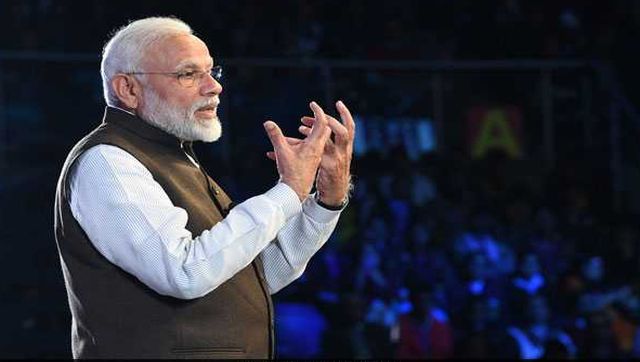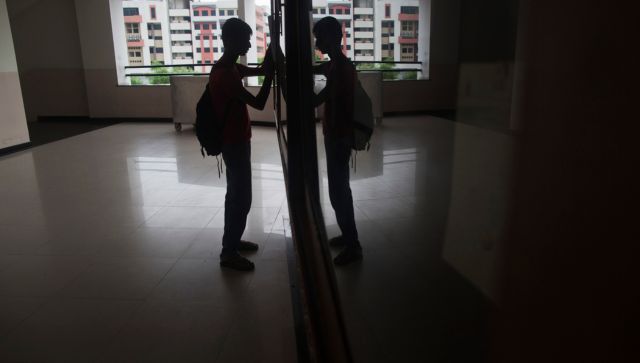India on Monday introduced a stringent anti-cheating bill in Parliament. Union minister Jitendra Singh introduced the Public Examinations (Prevention of Unfair Means) Bill, 2024 in the Lok Sabha. The bill mandates a maximum jail term of 10 years and a fine of up to Rs 1 crore for malpractices and irregularities in competitive examinations. It comes in the backdrop of a cancellation of a series of competitive tests such as the teacher recruitment exam in Rajasthan, Common Eligibility Test (CET) for Group-D posts in Haryana, recruitment exam for junior clerks in Gujarat and constable recruitment examination in Bihar following question paper leaks. But what do we know about this bill? Let’s take a closer look: First, it is important to note that the bill does not target students.
“Government in no way intends to penalise the examinees,” an official told The Times of India.
“A candidate, as defined in the Bill, shall not be liable for action within the purview of the bill and shall continue to be covered under the extant administrative provisions of the public examination authority concerned," a source told Indian Express. Rather, the bill takes aim at organised gangs, mafia elements and those indulging in malpractices including government officials. Indian Express reported that the bill is being piloted by the Department of Personnel and Training (DoPT) under the Ministry of Personnel, Public Grievances and Pensions. It will cover the Union Public Service Commission (UPSC), Staff Selection Commission (SSC), Railways, and banking recruitment exams, Common University Entrance Test (CUET), National Eligibility and Entrance Test (NEET), and Joint Entrance Examination (JEE). All computer-based examinations conducted by the National Testing Agency (NTA) will also come under the bill’s ambit. As per Times Now, the bill mandates a three to five year prison term for involvement in paper leak cases. However, in cases where a link to organised crime is proven it calls for a prison sentence of up to 10 years. It imposes a fine of Rs 1 crore and recovering the cost of conducting examinations from firms. It says a firm also may be barred from conducting public exams for for years in case of a conviction. [caption id=“attachment_12806322” align=“alignnone” width=“640”] The bill also proposes a high-level national technical committee on public examinations that will make recommendations to make the computerised examination process more secure.[/caption] It also proposes that officers not under the rank of deputy superintendent of police or assistant commissioner of police must head up such matters. The government under the bill also holds the power to send the probe to a Central agency. It proposes 20 offences and unfair means including impersonation, manipulation of answer sheets and tampering with documents, as per Times Now.
The bill also proposes a high-level national technical committee on public examinations that will make recommendations to make the computerised examination process more secure.[/caption] It also proposes that officers not under the rank of deputy superintendent of police or assistant commissioner of police must head up such matters. The government under the bill also holds the power to send the probe to a Central agency. It proposes 20 offences and unfair means including impersonation, manipulation of answer sheets and tampering with documents, as per Times Now.
As per NDTV, offences under the bill will be cognisable, non-bailable, and non-compoundable.
In essence, this frees up to the police to act on its own and arrest suspects without a warrant. The accused will also not be eligible for bail. “Any exam wants to test the real level, the knowledge and mental capability, of all candidates. If there is an unfair advantage to any one person, or group of people, this is not good for the growth of the nation,” Rajkumar Ranjan Singh, the junior Union Education Minister, told NDTV. “He, or she, may pass with a high score… but he, or she, may not be able to contribute anything to the growth of the country. So, in the long run, we want capable citizens by 2047,” he said. “So we have to have this bill… to prohibit unfair advantage for some in competitive exams.” It also proposes the formation of a high-level national technical committee on public examinations that will make recommendations to make the computerised examination process more secure. The committee shall look into developing protocols for insulating digital platforms, devising ways and means for developing foolproof IT security systems, ensuring electronic surveillance of examination centres and formulating national standards and services for both IT and physical infrastructure to be deployed for conduct of such examinations. In many instances, it has been observed that organised groups and mafia elements involved in malpractices deploy solver gangs, use impersonation methods and indulge in paper leaks. The bill primarily aims to deter such nefarious elements. The objective of the bill is to bring in greater transparency, fairness and credibility to the public examination systems and to reassure the youth that their sincere and genuine efforts will be fairly rewarded and their future is safe. “These unfair practices if not effectively prevented and deterred, will continue to jeopardise the future and careers of millions of aspiring youths of this country. In many instances, it has been observed that organised groups and mafia elements are involved. They deploy solver gangs, impersonation methods, and indulge in paper leaks. The Bill primarily aims to deter such kind of nefarious elements,” a source told Indian Express. [caption id=“attachment_13662912” align=“alignnone” width=“640”] Prime Minister Narendra Modi had taken aim at the previous Ashok Gehlot government in Rajasthan. PIB[/caption] Addressing a joint sitting of both houses of Parliament at the beginning of the Budget session on 31 January, President Droupadi Murmu had said the government is aware of the concerns of the youth regarding irregularities in examinations. “Therefore, it has been decided to enact a new law to deal sternly with such malpractices,” she had said. Paper leak nation As per News18, more than 1.5 crore students have been affected by paper leaks from 2016 to 2023. More than 70 cases of question paper leaks have occurred in the same period.
Prime Minister Narendra Modi had taken aim at the previous Ashok Gehlot government in Rajasthan. PIB[/caption] Addressing a joint sitting of both houses of Parliament at the beginning of the Budget session on 31 January, President Droupadi Murmu had said the government is aware of the concerns of the youth regarding irregularities in examinations. “Therefore, it has been decided to enact a new law to deal sternly with such malpractices,” she had said. Paper leak nation As per News18, more than 1.5 crore students have been affected by paper leaks from 2016 to 2023. More than 70 cases of question paper leaks have occurred in the same period.
Still, Rajasthan appears to be a hotbed of paper leaks.
At least a dozen recruitment drives have been cancelled owing to paper leaks in the state between 2018 and February 2023. Since 2014, 615 accused have been arrested in connection with 33 cases of government recruitment paper leaks. Between 2018 and February 2023, at least 12 recruitment drives were cancelled in Rajasthan owing to paper leaks. As per The Print, since 2019, the state witnessed an average of three paper leaks every year. Nearly 40 lakh students have been affected by paper leaks. As per The Times of India, paper leaks in Rajasthan also became a high-profile political issue. Prime Minister Narendra Modi had slammed the former Ashok Gehlot government while campaigning in Rajasthan. Modi said the ‘paper leak mafia’ had ruined thousands of lives and that the young people were demanding justice. The then Gehlot government under pressure amended the the Rajasthan Public Examination (Measures for Prevention of Unfair Means in Recruitment) Act to make the maximum penalty for the offence life imprisonment. “Lax action has emboldened the paper leak mafia. They’ve become more brazen. In almost all cases since 2019, a majority of those arrested are out on bail,” BJP Rajya Sabha MP Kirodi Lal Meena told the outlet last year. “Who is the kingpin in these cases? Has the police found out? Such frequent paper leaks can’t happen without the complicity of administration and officials,” Meena told The Print. Additional Director General of Police (ADGP) Ashok Rathore, told the outlet the printing presses remain safe. “The leaks have not happened at the level of the printing press, but mainly at the level of examination centres. There are well-knit gangs that are involved.” “Our investigation has shown that the gang has 3-4 layers. The first comprises one or two persons who procure the paper from the exam centre, the second comprises another one or two persons who solve the paper. The solved papers are then handed over to another set of persons who leak them to students before they reach the exam centres,” Rathore added. Meanwhile, a slew of other states including UP, Haryana, Assam and Arunachal Pradesh have passed anti-paper leak laws. While some laws cover just recruitment examinations, others also include entrance tests to state educational institutions. With inputs from agencies
)